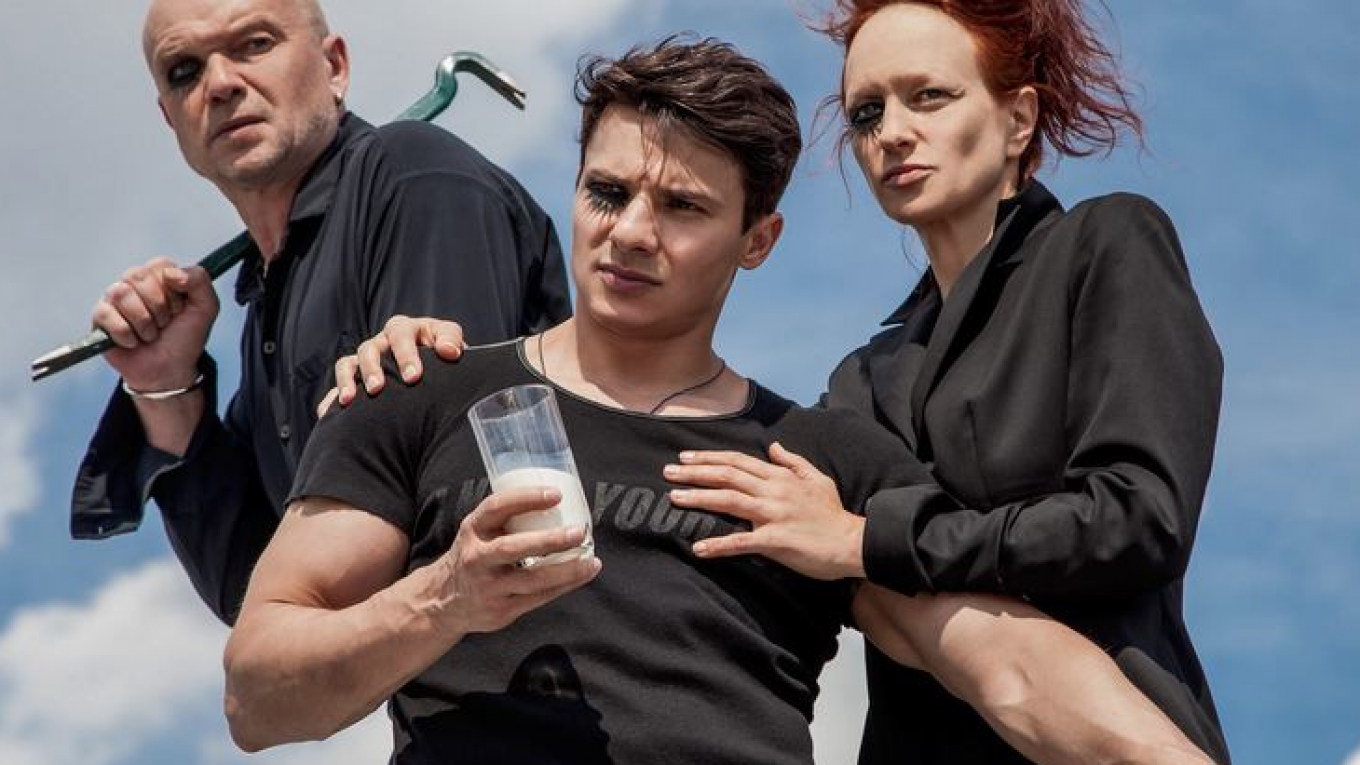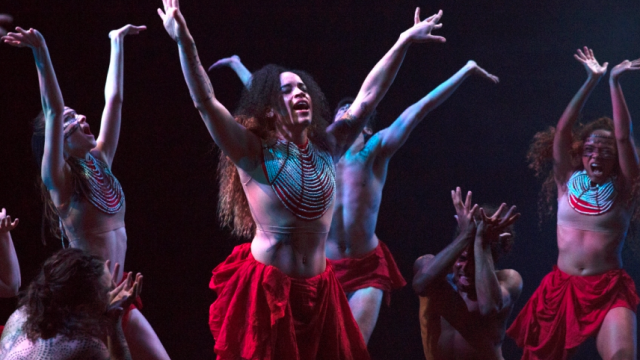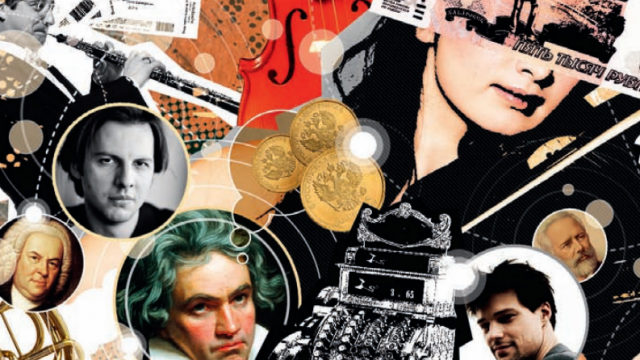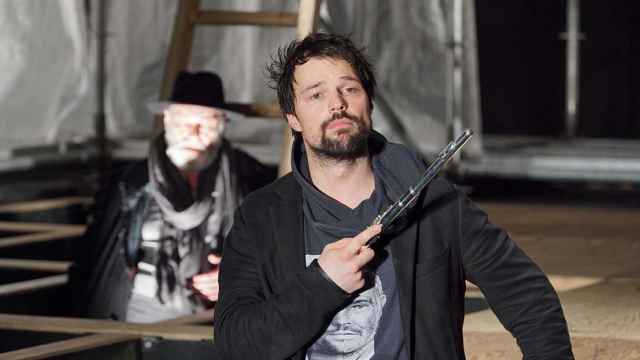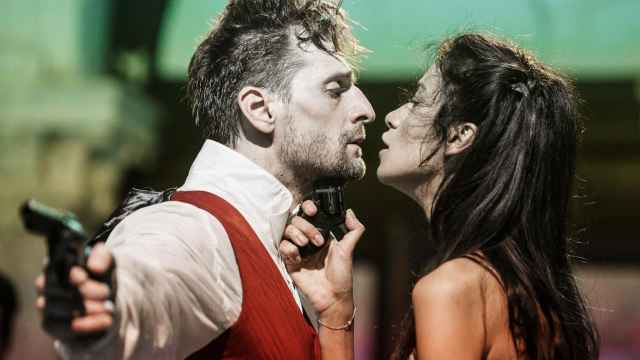Moscow is a city of theater. It's one of the few world capitals where a new interpretation of Chekhov's "The Seagull" still sparks ticket lines around the block, and a well-known director's move to another theater is casual office conversation.
The new season, which began last month, is no different. This Autumn, two theaters stand out for their diversity and creativity: the Theater of Nations and the Stanislavsky Electrotheater, both of which opened new performance spaces following their summer recess.
New Premieres and Old Favorites
The Theater of Nations continues to forge its reputation as a hotbed for creative innovation with a new venue called New Space. Located in an early 19th century mansion on Strastnoi Bulvar, the multipurpose building is designed as a platform for the contemporary arts in all their incarnations: from photography to music, film, literature and even architecture.
Curated by Vera Martynova, known for her work as chief set-designer at the well-regarded Gogol Center, New Space proposes a lively schedule of exhibitions, performances and lectures over the coming months. Its main purpose, however, is to prepare the viewer for unorthodox theater performances.
“The audience doesn’t understand the language of this or that director right away. At the New Space, we’ll have workshops, lectures and films devoted to directors and their particular style of theater,” said Yevgeny Mironov, artistic director of the Theater of Nations, at a press conference for the opening. “The idea is that this will help the viewer to come prepared for the actual theater performance — to look at it from a professional perspective.”
The season kicked off at the Theater of Nations with the premiere of a new interpretation of a “A Clockwork Orange,” based on the 20th century classic by Anthony Burgess. Set on the Small Stage and directed by Philip Grigoryan, known for his futuristic interdisciplinary projects, “A Clockwork Orange” revolves around the figure of Burgess and his wife, who was brutally attacked and raped in 1944 during a London blackout. Blending the writer’s own story with a story written by him, Grigoryan’s version is a harrowing look at crime and its impact on our society.
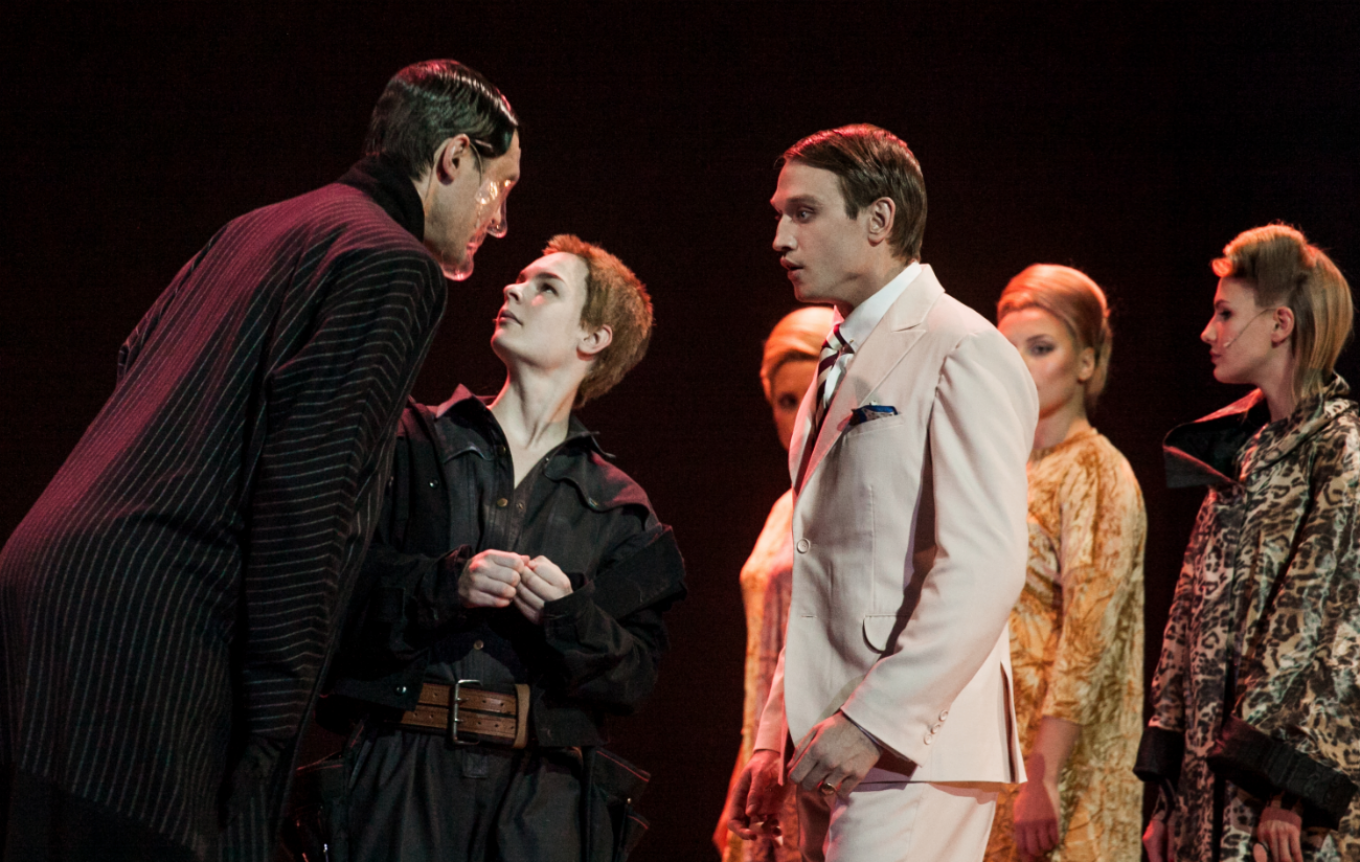
In November another premiere, “Ivona, Princess of Burgundia,” is welcomed to the Main Stage. The production is directed by Grzegorz Jarzyna, one of the most exciting names in Polish contemporary theater and both head and artistic director of TR Warszawa in Warsaw.
This will be both Jarzyna’s first production in Russia and a world premiere of “Ivona,” which is based on the absurdist comedy by the Polish writer Witold Gombrowicz. “In this play two themes are important to me,” said Jarzyna. “One is relations within a family and the other is the politics that influence these relations.” The production is set in the interwar years and examines the turmoil caused when a reserved girl, Ivona, marries into a royal family. The performance is in Russian, but English subtitles are provided.
The 2016 season wraps up with a premiere of Anton Chekhov’s “Ivanov.” The play was commissioned in 1887 by Fyodor Korsh, the founder of the Korsh Theater. The Korsh Theater on Petrovsky Pereulok was later to become the Theater of Nations, and in this performance artistic director Yevgeny Mironov will himself will play the lead role.
The controversial Timofey Kulyabin will be directing proceedings. Last year his production of Wagner’s opera “Tannhäuser” in Novosibirsk — advertised by a poster featuring a crucifix between a naked woman's open legs — fueled nation-wide discussion about the role of religion and art in Russian society.
Alongside the season’s premieres, the Theater of Nations will continue its roster of last season’s popular hits, such as a reimagining of Fyodor Dostoevsky’s “Idiot” by Maxim Didenko and “Skazki Pushkina” (Pushkin’s Fairytales) by Robert Wilson.
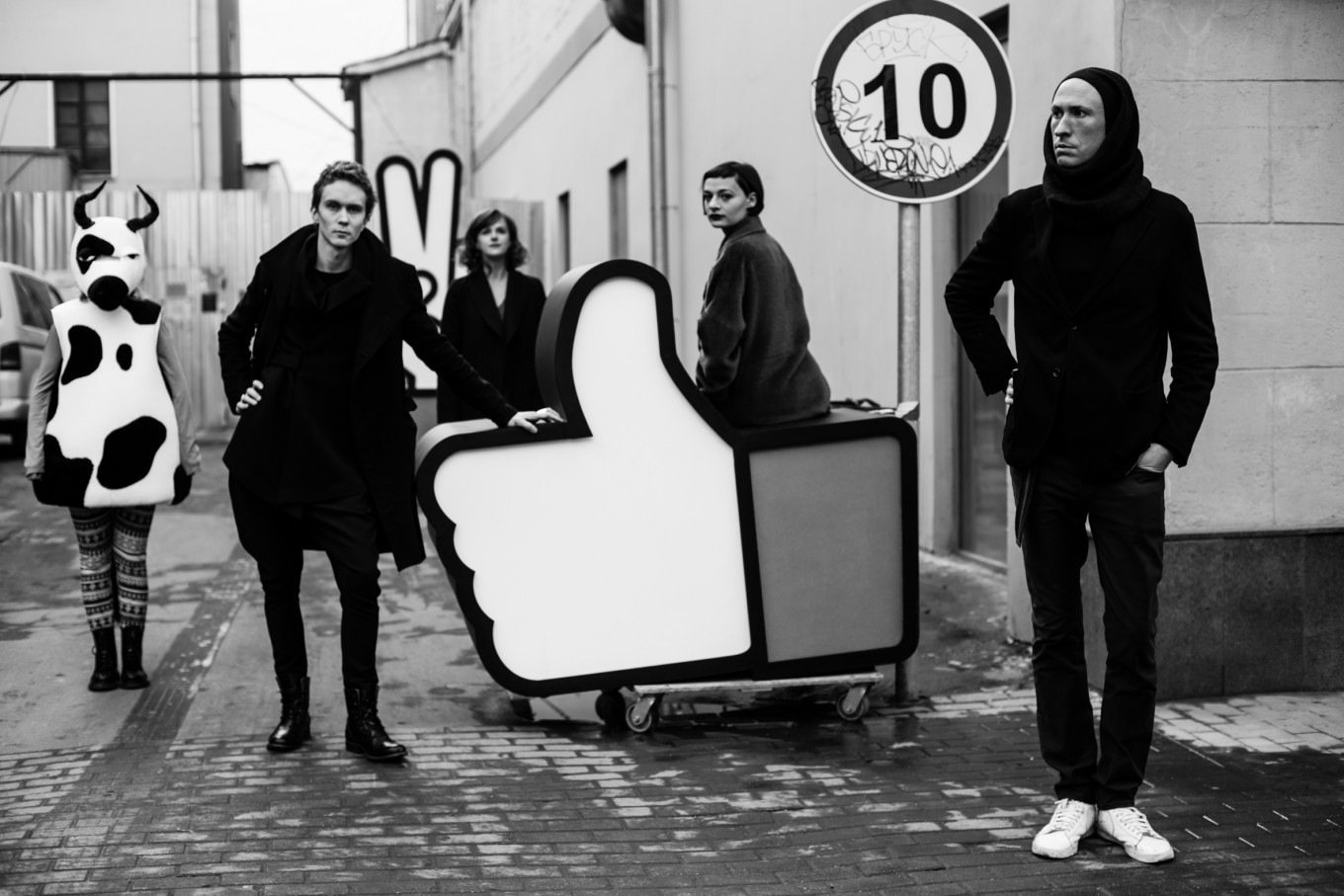
Embracing the Experimental
The Theater of Nations is not alone in expanding the horizons of its guests, both creatively and spatially — last week the Stanislavsky Electrotheater opened its new Small Stage.
Part of an ambitious renovation plan that will turn the whole courtyard behind the theater into a space where viewers can interact with performers in a new way, the reconstruction was carried out by Moscow architecture firm Wowhaus.
The firm’s crowning achievements include Strelka Institute on Bolotny Island and some of the renovations at Gorky Park. Boris Yukhananov, the artistic director of the theater, claims the courtyard will host its first opera production in May 2017.
While the Main Stage will concentrate on time-tested productions such as “The Blue Bird,” “Psychosis” and “Anna in Tropics,” the Small Stage will become the space for new, experimental performances, mostly by Yukhananov’s students. The Small Stage’s lobby is rather austere in its design and as Yukhananov puts it, “in the style of New York’s concrete architecture. It’s a sort of internal New York in our dear city — with all that that implies.”
The Small Stage’s opening production this season was a stage adaptation of the cult Soviet film “Fantazii Faryatyeva” (Faryatyev’s Fantasies) about a dentist who falls in love with the beautiful Alexandra, who is more interested in his best friend. Director Yevgeny Bednyakov, a graduate of Boris Yukhananov's Studio of Individual Directing (MIR), interprets the play as a collection of movie clichés united by Alla Sokolova’s original text.
“Maniagnosis,” by director and composer Alexander Belousov, is another of the Small Stage’s premieres this October. The chamber opera is based on Baruch Spinoza's philosophical ideas concerning intuitive cognition. The meta-story about a writer who loses control of his written character is accompanied by music played on various objects, including a washing machine, metal barrels and a steel box. The music is accompanied by a vocal polyphony reciting German, Russian and Latin texts.
Other significant premieres include “Love Machines,” based on Keti Chukhrov’s dramatic poem about robot-seducers, and “The House of Bernarda Alba” by Federico Garcia Lorca, both directed by Yukhananov’s students.
Perhaps the most anticipated premiere of the season is “Tartuffe,” a work by Molière first performed in 1664. Philip Grigoryan, the director of “A Clockwork Orange” at the Theater of Nations, isn’t one for straightforward productions, so expect the unexpected. November’s production will feature not one, but two plays presenting parallel worlds where the same characters and events look completely different. The score by experimental musician Dmitry Vikhornov and choreography by Anna Abalikhina add to the suspense.
Given that these are just a taste of the creative productions Moscow is debuting this season, there’s no doubt that theater’s place at the heart of the capital’s cultural life is secure.
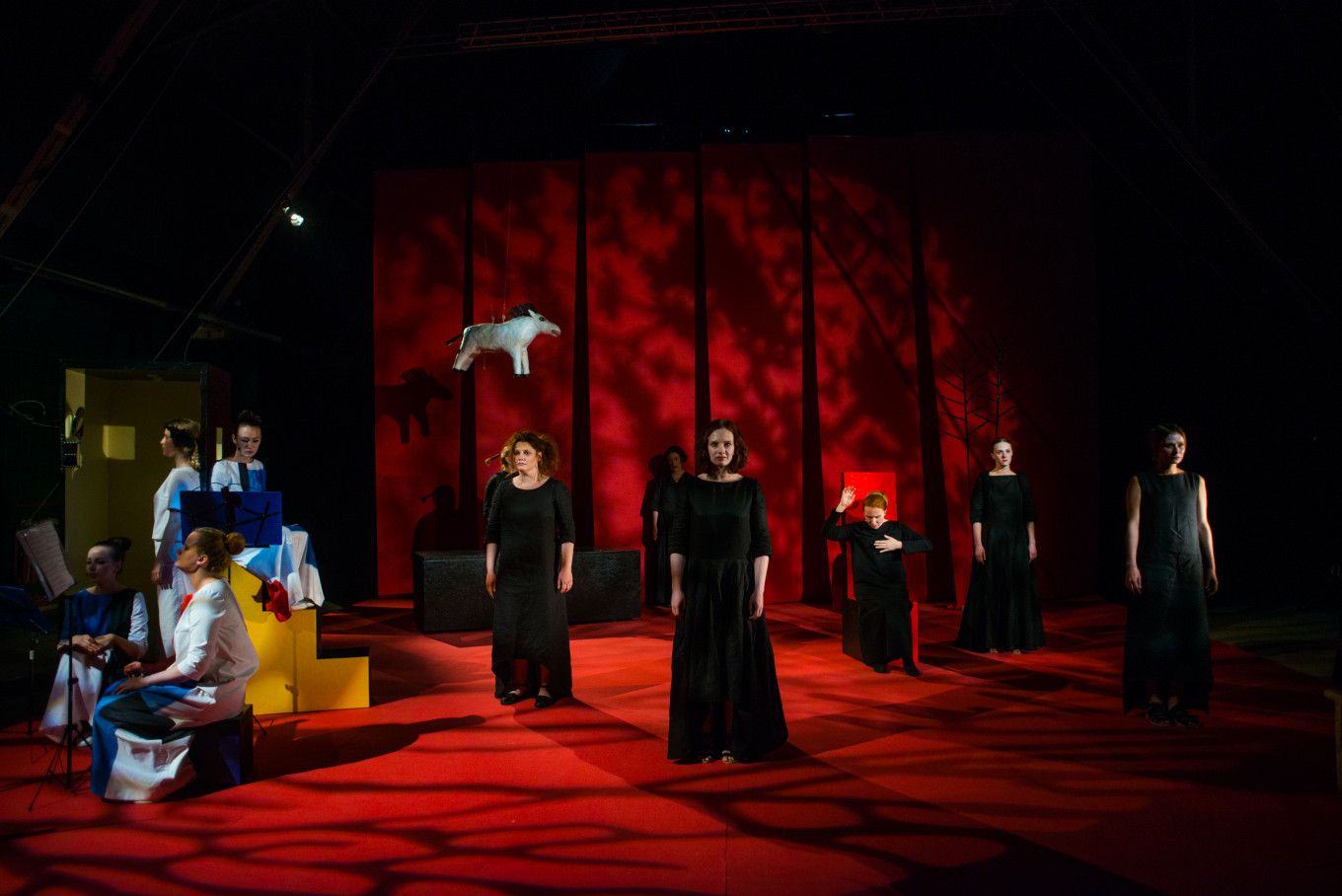
A Message from The Moscow Times:
Dear readers,
We are facing unprecedented challenges. Russia's Prosecutor General's Office has designated The Moscow Times as an "undesirable" organization, criminalizing our work and putting our staff at risk of prosecution. This follows our earlier unjust labeling as a "foreign agent."
These actions are direct attempts to silence independent journalism in Russia. The authorities claim our work "discredits the decisions of the Russian leadership." We see things differently: we strive to provide accurate, unbiased reporting on Russia.
We, the journalists of The Moscow Times, refuse to be silenced. But to continue our work, we need your help.
Your support, no matter how small, makes a world of difference. If you can, please support us monthly starting from just $2. It's quick to set up, and every contribution makes a significant impact.
By supporting The Moscow Times, you're defending open, independent journalism in the face of repression. Thank you for standing with us.
Remind me later.


